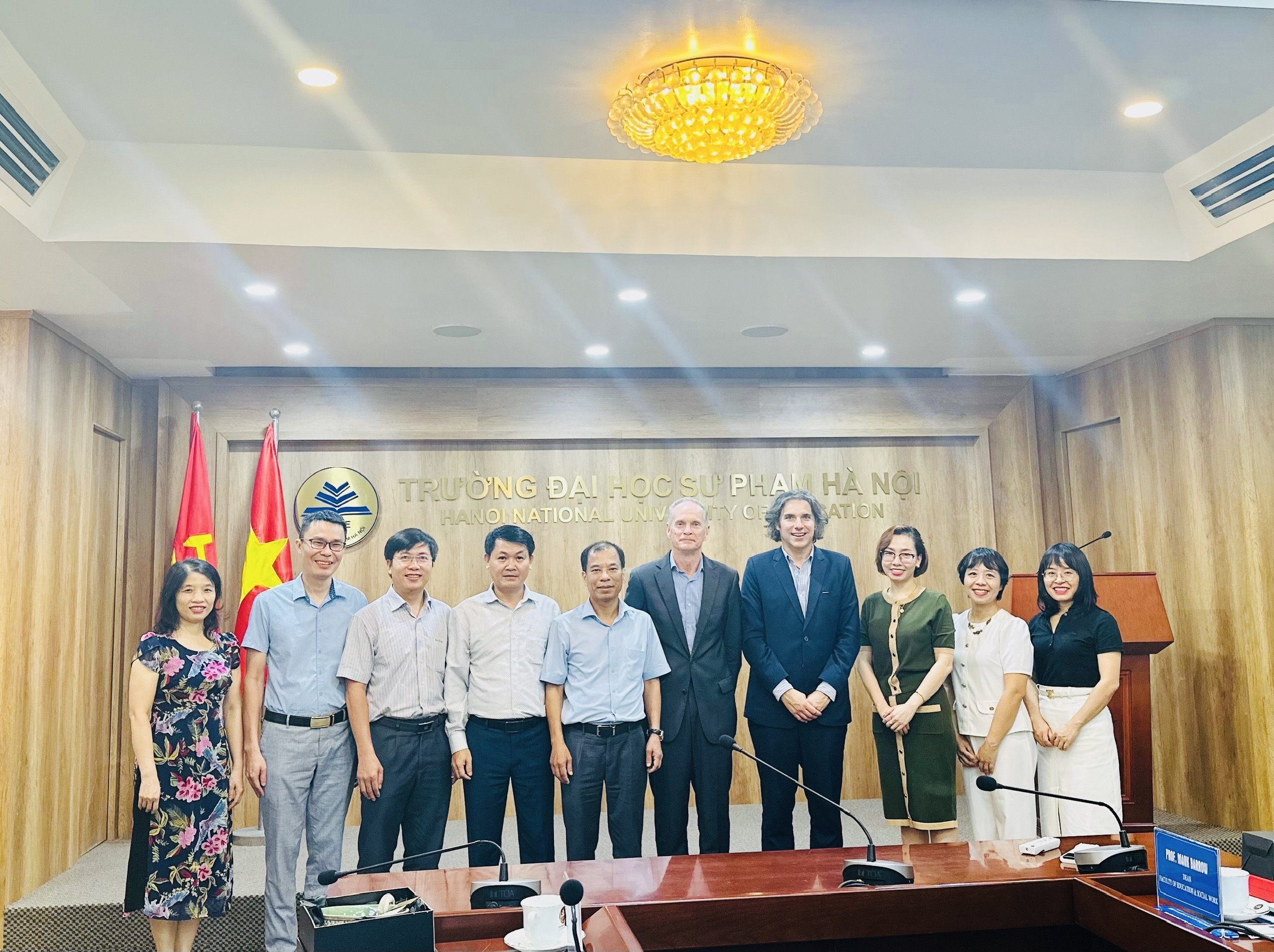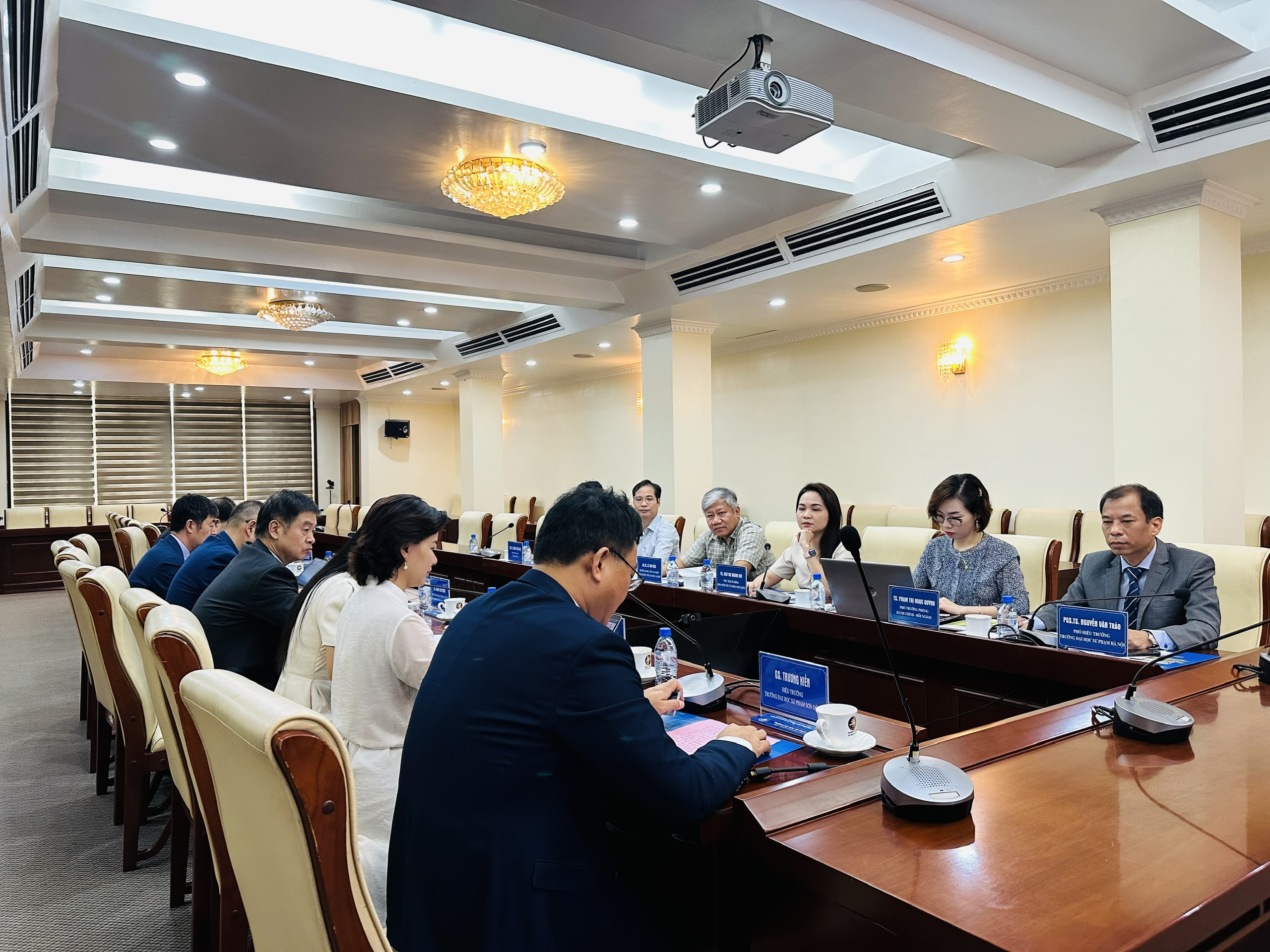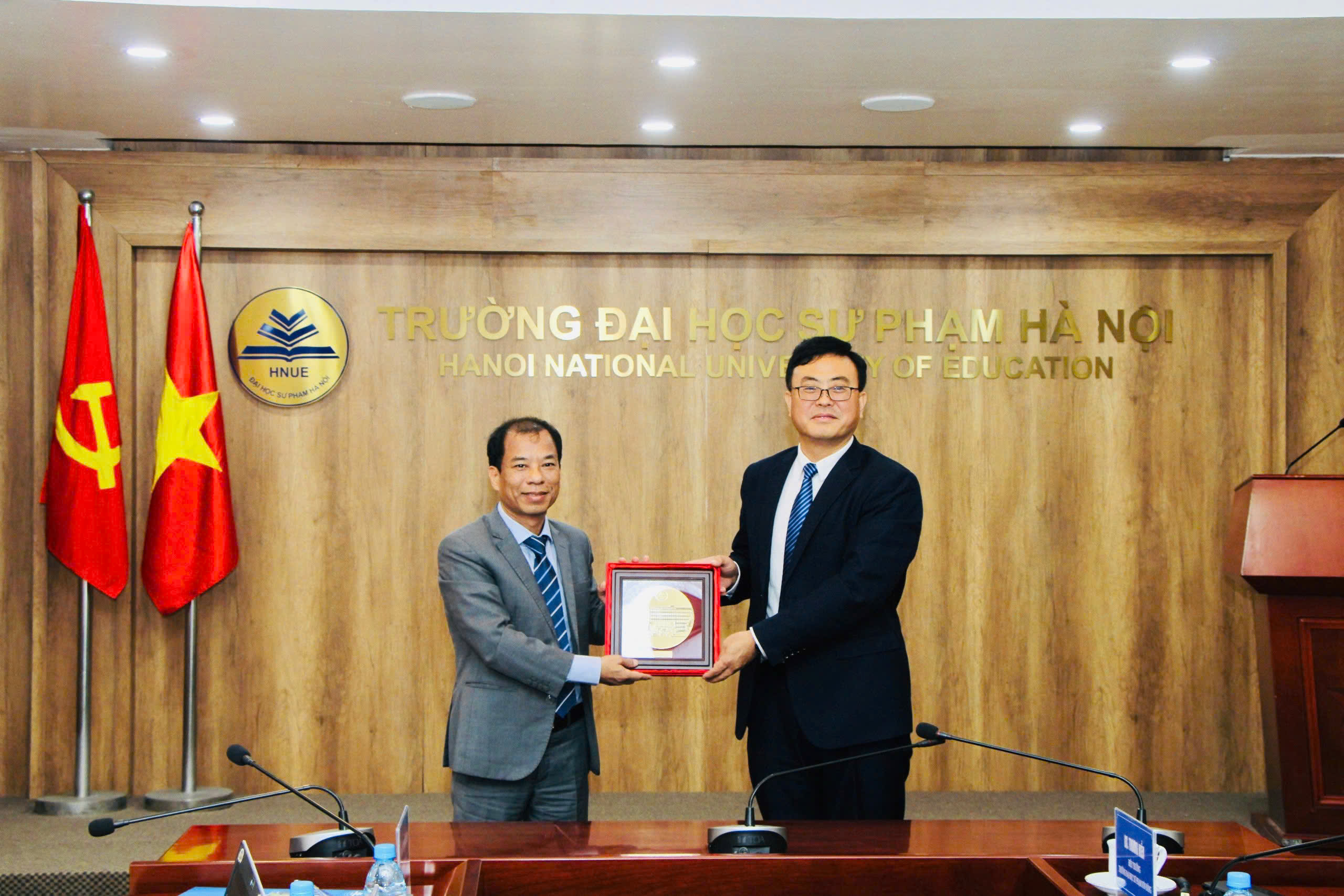The delegation from SDNU included: Prof. Zhang Jian - President of SDNU; Prof. Chang Bing - Director of the President's Office; Prof. Zhao Wei - Party Secretary of the School of Materials Science and Chemistry; Prof. Zhou Liandong - Director of the International Exchange and Cooperation Office and Director of the Confucius Institute Office; Prof. Wang Chengxin - Dean of the School of Geography and Environmental Science; Prof. Chang Qing - Dean of the School of Journalism and Communication; Mr. Dinh Thieu Bang - General Secretary of the Shandong-Vietnam University Alliance.
Dr. Tra My, president, and Ms. Pham Ly, assistant to the president, represented the Vietnam Business Association in China.
On behalf of HNUE, the following representatives were present: Assoc. Prof. Dr. Nguyen Van Trao - Vice President of HNUE; Dr. Pham Thi Ngoc Quynh - Deputy Head of the President's Office; Prof. Dr. Le Huy Bac - Director of the Institute of International Education and Training; Dr. Pham Sy Cuong - Principal of Nguyen Tat Thanh Secondary and High School; Dr. Ngo Thi Khanh Chi - Dean of the Faculty of Chinese Language and Culture; and Assoc. Prof. Dr. Duong Tuan Anh - Vice Dean of the Faculty of Philology.
In his opening remarks, Assoc. Prof. Dr. Nguyen Van Trao warmly welcomed the delegation from SDNU and the Vietnam Business Association in China. He highlighted the significance of October 2024, marking the 70th anniversary of Hanoi's liberation and the 73rd anniversary of HNUE's establishment, a leading teacher training institution in Vietnam. He provided an overview of HNUE's undergraduate and postgraduate programs, faculty and student body, and critical disciplines. He also emphasized the similarities between HNUE and SDNU in their range of education and non-education programs.
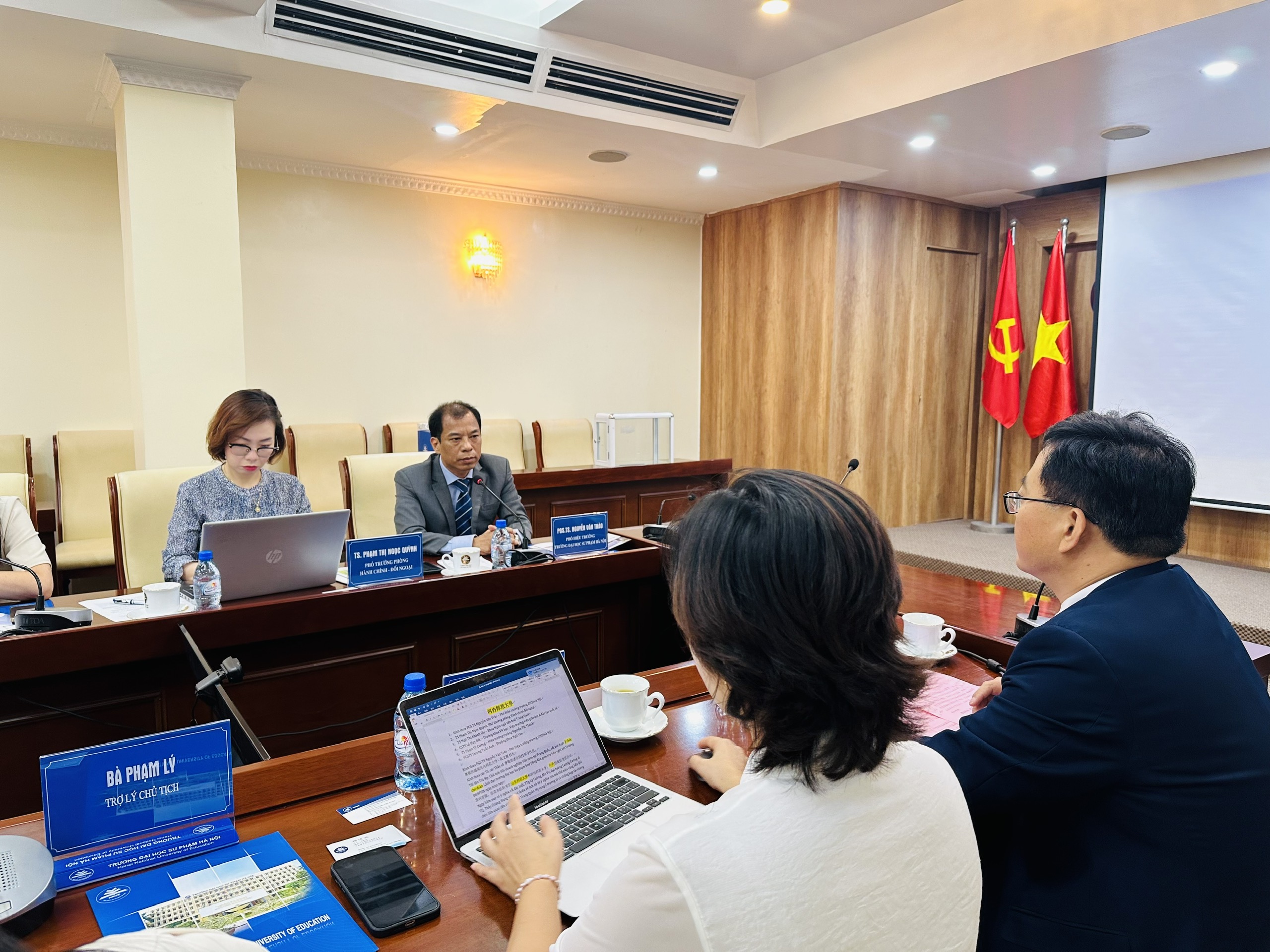
On behalf of SDNU, Prof. Zhang Jian expressed his delight at his first visit and exchange with HNUE. He emphasized the close relationship between the two universities, with 60% of their programs focused on education. He provided an overview of SDNU, located in Shandong Province, the most populous province in China and the birthplace of Confucius and Confucianism. The university was founded in 1950 and boasts a large scale, high-quality training, and extensive international cooperation. SDNU is proud to have many Vietnamese international students, accounting for the highest percentage among its international student body. Prof. Zhang expressed his desire for extensive cooperation with HNUE in various areas, including student and faculty exchanges and scientific research. He believes this cooperation will strengthen the friendship between Vietnam and China. Finally, Prof. Zhang invited HNUE and Dr. Tra My to visit SDNU during its 75th anniversary in 2025.
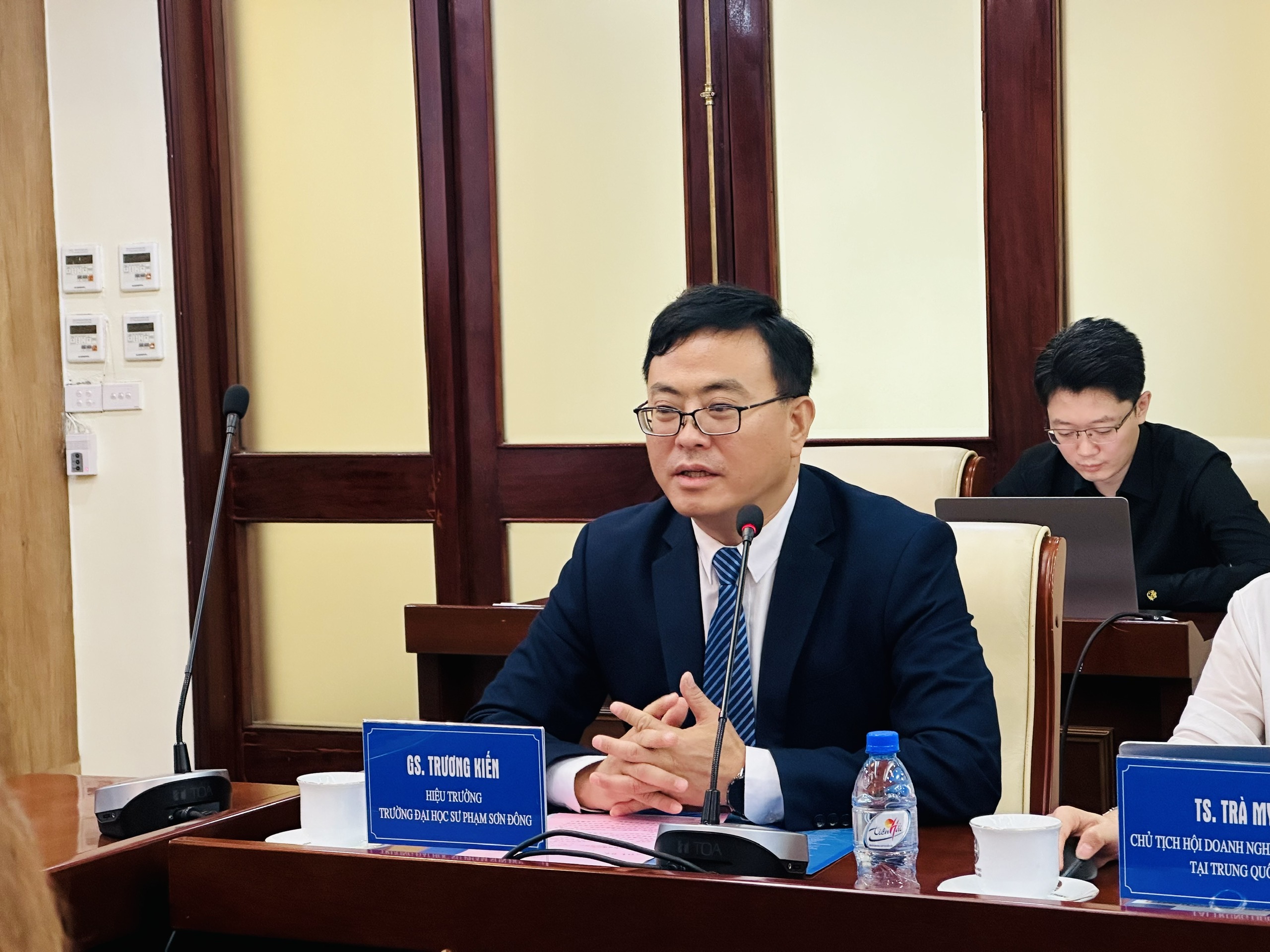
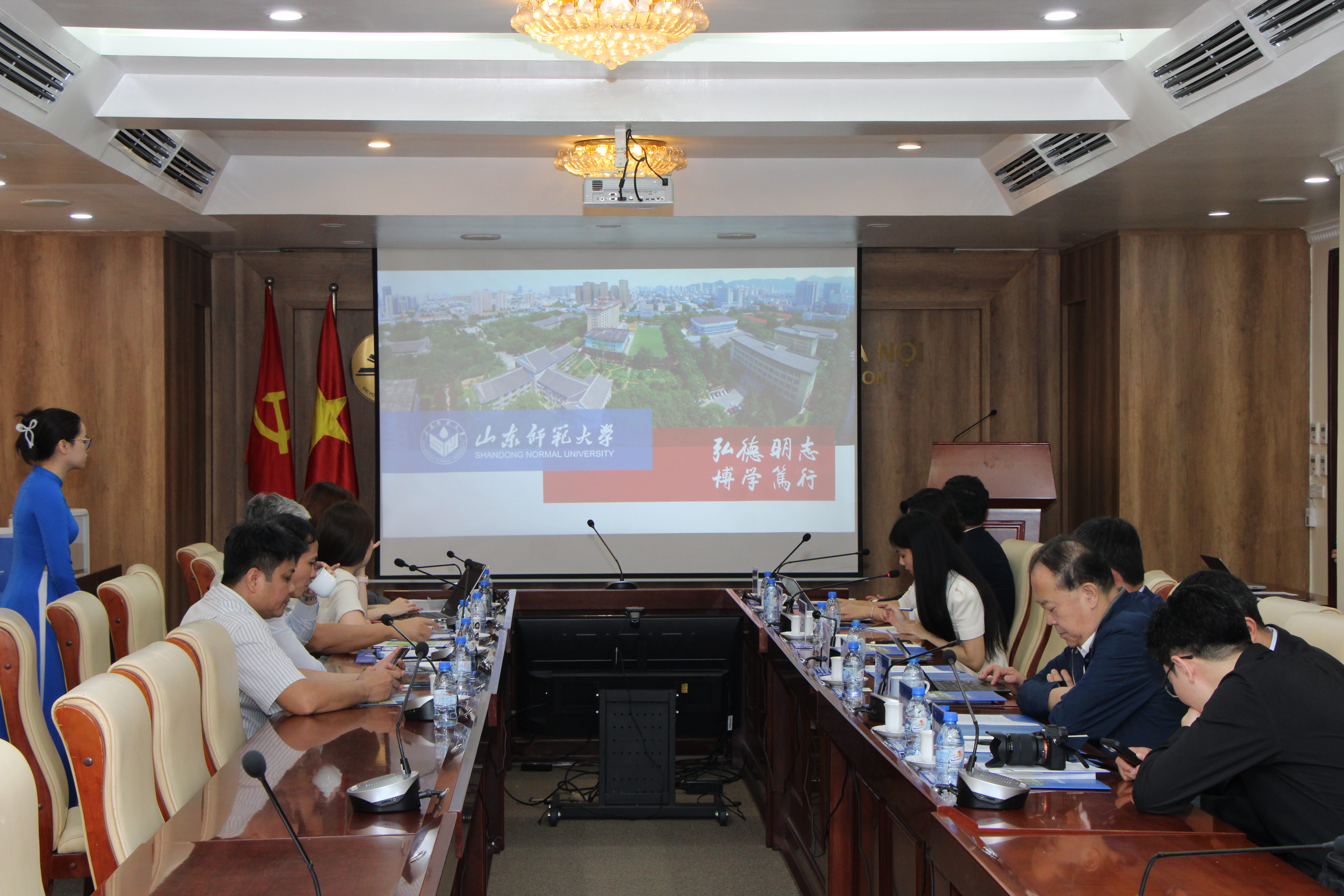
Representing the Vietnam Business Association in China, Dr. Tra My stated that this was SDNU's first visit to Vietnam, taking place amidst the positive development of the two countries' relations. Shandong Province is a solid economic and educational development province, with many universities and students. The province also attaches great importance to cooperation with Vietnam, especially education. Shandong is promoting collaboration with Vietnamese universities, as demonstrated by the establishment of the Vietnam-China Education Alliance, which facilitates enrollment, recruitment, and exchange between universities.
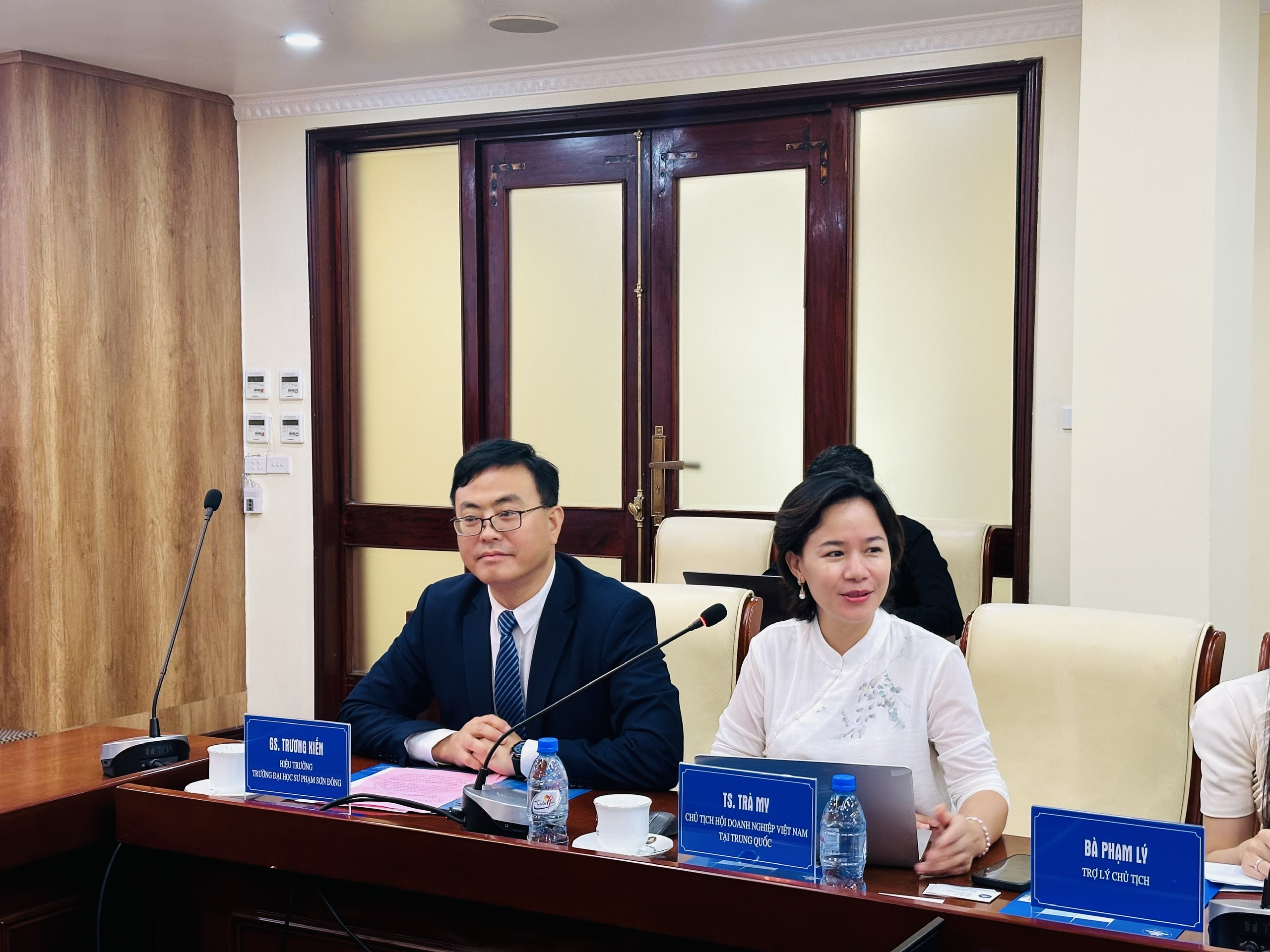
Representatives from HNUE's faculties and institutes shared important information about their training programs and international cooperation activities. They expressed their desire for practical and effective exchange activities shortly.
Concluding the meeting, Assoc. Prof. Dr. Nguyen Van Trao proposed five main areas for international cooperation between the two institutions: (1) Program and credit recognition, facilitating student mobility and credit transfer; (2) Student exchange programs in fields with shared development orientations; (3) Internship opportunities for HNUE students majoring in Chinese Language and Culture at SDNU; (4) Vietnamese language support for SDNU students studying Vietnamese and related cultural disciplines at HNUE; and (5) Collaborative research and faculty exchange. To effectively implement these cooperative activities, support in terms of mechanisms and policies from both universities is necessary.
The meeting concluded with a strong consensus among the leaders of the two institutions on activities to promote exchange and cooperation. The aim was to celebrate the important milestones of both universities in 2025 and 2026.
Some photos of the working session:
